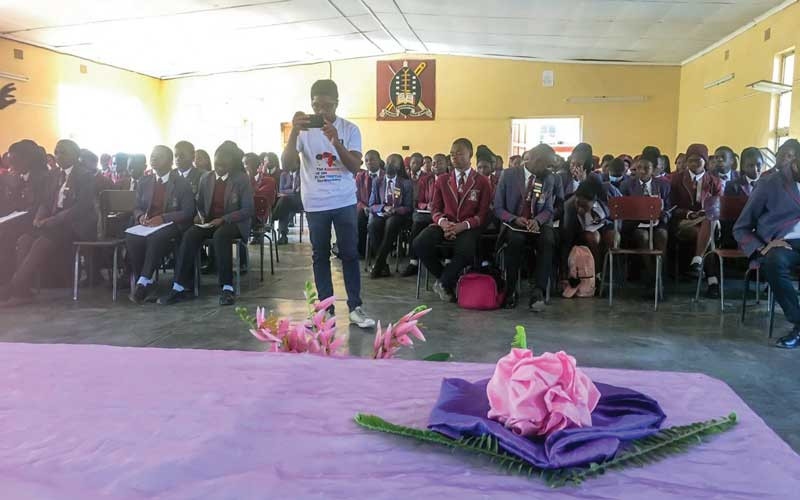
I HAD the privilege of spending June 16, which is the International Day of the African Child with some phenomenal students from Harare High School in Mbare, thanks to Ruth Takapera, who I met through an alumni organisation we are both part of.
In our initial meeting, we spoke about how much work was needed across Zimbabwe to equip our young people for the not-so-distant future. I was thrilled when the talk for both of us turned into action on the ground and not just pleasantries between women.
The day in Mbare reminded me of why acknowledging and commemorating days like youth day is imperative not just to South Africa where it originated in 1976 when “thousands of South African students protested the apartheid government’s use of Afrikaans as their language of instruction in Bantu schools”, but how in modern post — the voices of the youth are still critical for change.
Who would have thought more than 20 years later the continent and the world would still be talking about the choices of a few brave students, who dared to oppose a highly resourced and extremely violent apartheid government and racist system that was willing and ready to use deadly force to silence their voices. They could have never known what their youthful actions would do and how their actions would ripple in the sands of time.
According to the World Economic Forum, by 2030 young Africans are expected to constitute 42% of global youth. We will be the world in the words of child prodigy and late American pop superstar Michael Jackson, but are we ready?
“There is growing recognition that Africa’s education programmes must be re-imagined to nurture the entrepreneurial spirit that benefits society,” the World Economic Forum said in an article titled Why Africa’s Youth Hold the Key to its Development Potential published on September 19, 2022. “This means removing the top-down curricula that have for years restricted the potential of African youth within the confines of theory.
“Gone are the days when university education was just a stepping stone. Because it serves to encourage the demographic potential of youth, higher education in Africa must first and foremost help to shape the continent’s future. This begins with the recognition that African academia does not exist in a vacuum, but it is one variable in the developmental dynamic.”
I so love these words as they captured my thoughts precisely as I sat in that school in Mbare to talk about our upcoming DigitALL Innovation boot camp.
- Wha Wha books Chibuku date with Dembare
- Dynamos back to winning ways
- Acid test for struggling Dynamos
- TIME RUNNING OUT FOR NDIRAYA
Keep Reading
I thought to myself we are sending these young people into a competitive digital world where in five years artificial intelligence (AI) would have absorbed almost 80 million jobs and according to forbes.com many leading economic powerhouses, such as China and the United States, will be forced to re-train millions of their workforce due to AI-related deployment that being 50 million for China and 11,5 million workers for the US, respectively with the skills needed to survive in the workforce.
If 50 million people will need to be trained in China alone, a first-world country and leading economy, that got me thinking about our beautiful nation of Zimbabwe. What programmes are in place to retool, re-train, or reskill our workforce, and what programmes should we be embarking on to equip our high school students and those in tertiary, who will be in the workforce in the next five years.
“In a 2019 Wells Fargo study, the bank concluded that robots would eliminate 200 000 jobs in the banking industry within the next 10 years,” forbes.com said , adding that AI is shaking our premise around traditionally “safe jobs”.
Our current numbers around employment and whether institutions are ready and able to absorb the future workforce for most African countries is the question.
The alarm bells are not only ringing but blaring, as most African nations try to recover from the catastrophic effects of Covid-19. There is a ray of hope in my seemingly pessimistic article.
It is Zimbabweans like Kuda Musasiwa and his team who developed an AI chatbot to cater to the Zimbabwean market. This is a brilliant initiative to keep Zimbabwe in the digital game. It is also set to provide jobs for local and regional developers, data analytics, designers and more. It is an undeniable example of African ingenuity.
According to Gitnux in an article titled How AI is Replacing Jobs 2023: A Look at the Statistics, “AI is estimated to replace 85 million jobs by 2025, but seemingly 97 million new jobs will be created due to AI.”
The race for AI is on and we should not be left behind, not just for ourselves, but for the future 42% of the world’s youth.
Shana is an entrepreneur, digital and branding strategist.







